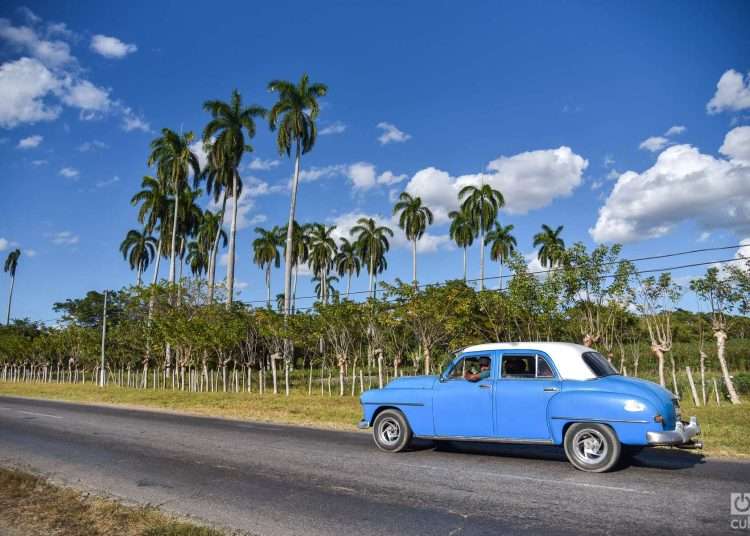At the Mesa Redonda TV program this Wednesday, Minister of Transportation Eduardo Rodríguez Dávila explained the new authorization for wholesalers to sell in freely convertible currency new and second-hand motor vehicles to all Cuban and foreign legal entities: the same for state enterprises, foreign firms, cooperatives, MSMEs or any other form of management.
Decree 83, published in the Gaceta Oficial Extraordinaria 16, announced these new regulations on the transfer of ownership of motor vehicles, trailers and semi-trailers, as well as their import and sale.
These sales will be made through wholesalers and the price will be based on the acquisition cost and with up to a 30% commercial margin.
As explained by the minister, prices will be updated every six months and will be adjusted as wholesale trade progresses.
Another novelty is that the current power restriction of up to 1,000 watts in imported electric motorcycles is eliminated and individuals are authorized to directly import sidecars and motorcycles with sidecars.
Electric vehicles will benefit from price incentives, both for wholesale and retail.
Revenues from taxes related to vehicle sales will go to a Fund for the Development of Public Transportation.
Through purchase, sale or donation, Decree 83 authorizes Cuban and foreign individuals residing in the country to transfer between themselves the ownership of motor vehicles, trailers and semi-trailers. It may also occur from individuals to Cuban and foreign legal entities.
Cuban and foreign legal entities with commercial representation in the country may also transfer ownership of motor vehicles between themselves. In the case of state enterprises, they will require the approval “of the highest-ranking authority of the governing body that directs or oversees it.”
The Decree establishes that non-state legal entities can only transfer ownership of vehicles to individuals who previously transferred that property to the legal entity in question.
Parts
In relation to the transfer of ownership, among themselves or between them, of motors, bodies, cabins, chassis and frames of motorcycles for replacement, Decree 83 establishes the authorization for individuals and legal entities, Cuban or foreign and residents, provided that these parts are of the same make and model as the one being replaced, unless technical compatibility is established by the corresponding authorities.
Article 28.2 prohibits the transfer of ownership of these parts from legal entities, Cuban or foreign, to individuals. Individuals can acquire these parts and pieces, by replacement, in authorized trading entities.
Electric vehicles
Although it does not detail them, Decree 83 establishes the promotion of the import of totally electric vehicles or of other renewable energy sources, as well as their charging infrastructures, through incentives that favor their acquisition and exploitation.
And it excludes the authorization for the installation of internal combustion engines from fossil fuels in electric vehicles or of other renewable energy sources.
This regulation authorizes Cuban individuals and foreign residents to import, without a commercial nature, electric motors and their accessories, for replacement or remotorization in order to convert them to electric.
Article 37 establishes that legal entities that acquire fleets of electric vehicles or of other renewable energy sources have to guarantee the creation of charging infrastructures that use these same sources, maintenance, repairs and final destinations when they are no longer technically viable, in accordance with the specific regulations in force.
Decree 83 takes effect on March 1.
Traders
The authorized trading entities are:
- IMPEXPORT, S.U.R.L.
- SERLOVEM, S.U.R.L.
- MCV COMERCIAL, S.A.
- CIMEX Corporation, S.A.
- Central Enterprise for the Supply and Sale of Heavy Transportation Equipment and Parts (TRANSIMPORT).
- Trading Enterprise for Industrial Objectives, Machinery, Equipment and Hardware Items (MAQUIMPORT).
- Divep Trading and Export Company, (COMERCIAL DIVEP).
- General Transportation Provider Company, (TRADEX).
Acute transportation crisis
On television, before announcing the approval of Decree 83, the Minister referred to the critical situation of passenger and cargo transportation in the country.
According to him, in the last three years, there has been considerable deterioration in transportation and infrastructure capacities and he recognized the “great dissatisfaction of our people and negative effects in the discipline and quality of services.”
The financial liquidity deficit prevents covering the 40 million dollars needed by public transportation for its maintenance, replacement and repair. Another aspect is the investments, practically non-existent.
“If we add to this the factor of the aging of the fleets, the figures grow every year, so investments are essential.”
To illustrate, Rodríguez Dávila listed some prices: a bus costs more than 200,000 dollars, a locomotive more than 2 million, a light aircraft more than 30 million, and a ferry-type boat, around 10 million.
The fuel shortage is also responsible for the current situation. “Sometimes we have the means, but not the fuel to make them work.”
The minister mentioned other issues such as the deterioration of roads that causes vehicle breakage and the high level of danger in certain areas ― in particular, he mentioned those of the Turquino Plan ― in the eastern part of the country.
The effects that the U.S. blockade policy against Cuba produces in the sector were also mentioned.
Public transportation, he said, is a service that is charged in national currency but requires foreign currency for its maintenance.
He reiterated the difference in prices between the much cheaper and loss-making state services (subsidized and maintained by the state budget), and those provided by the new non-state carriers, which are not available to the majority, in an inflationary context in which the wages have considerably lost their purchasing power.











China makes some excellent small affordable electric cars that would be very suitable for Cuba.
Which one?